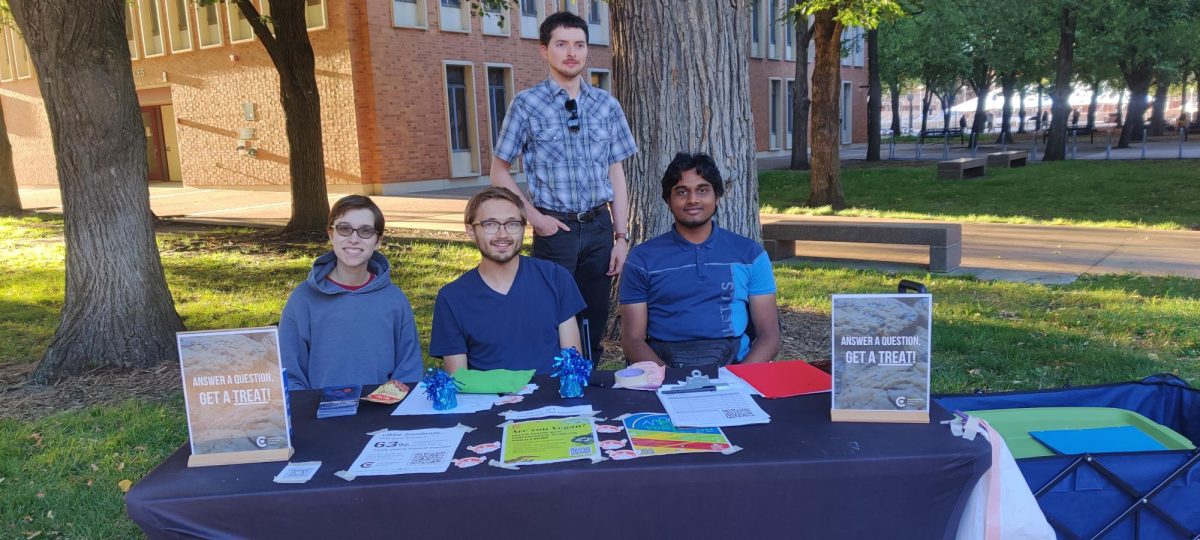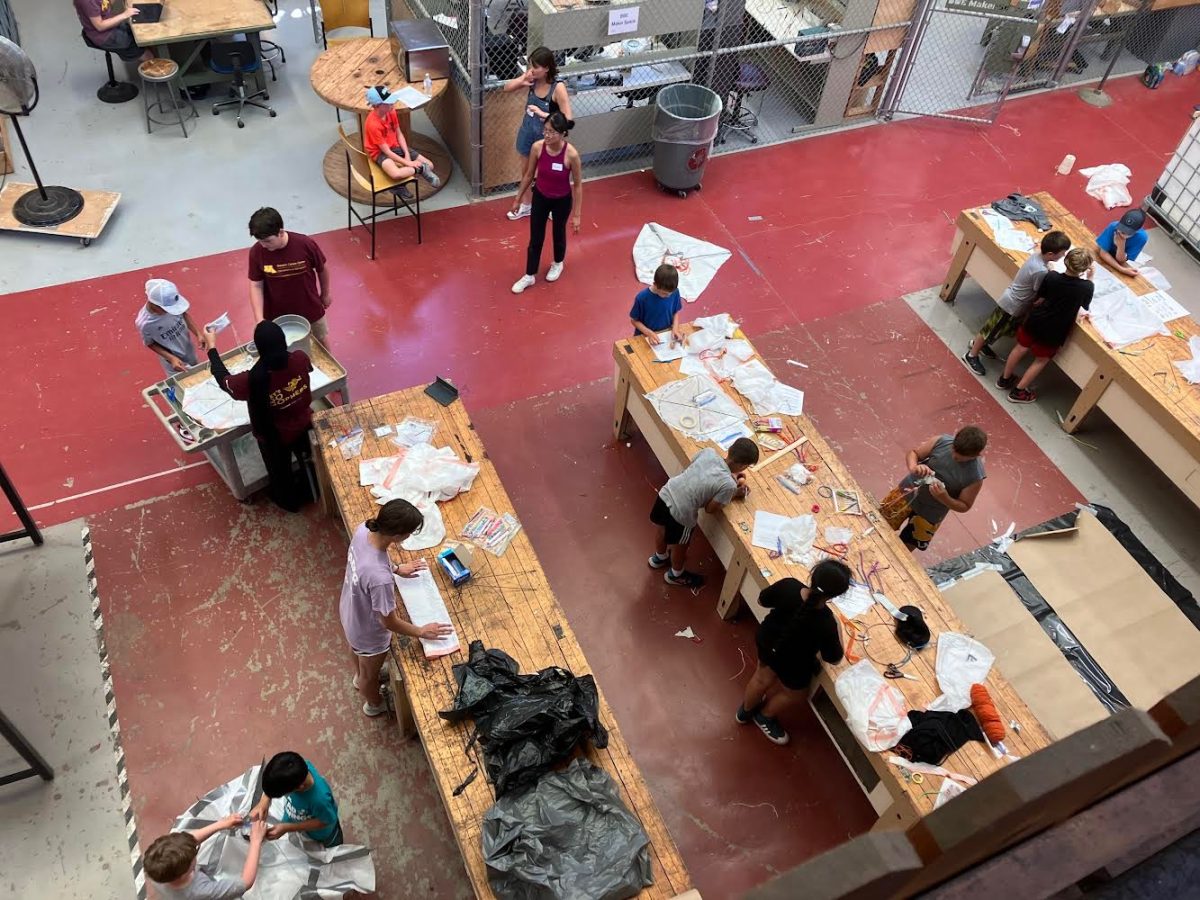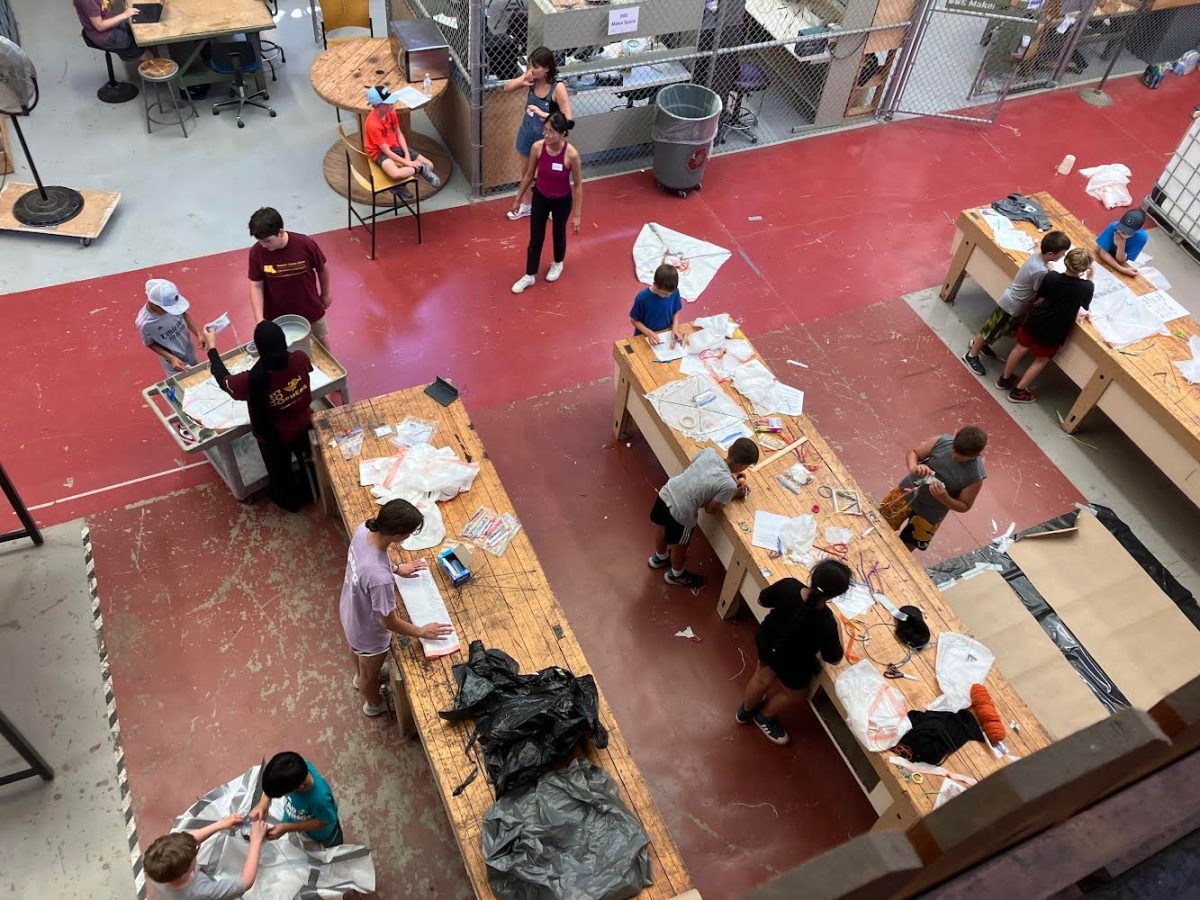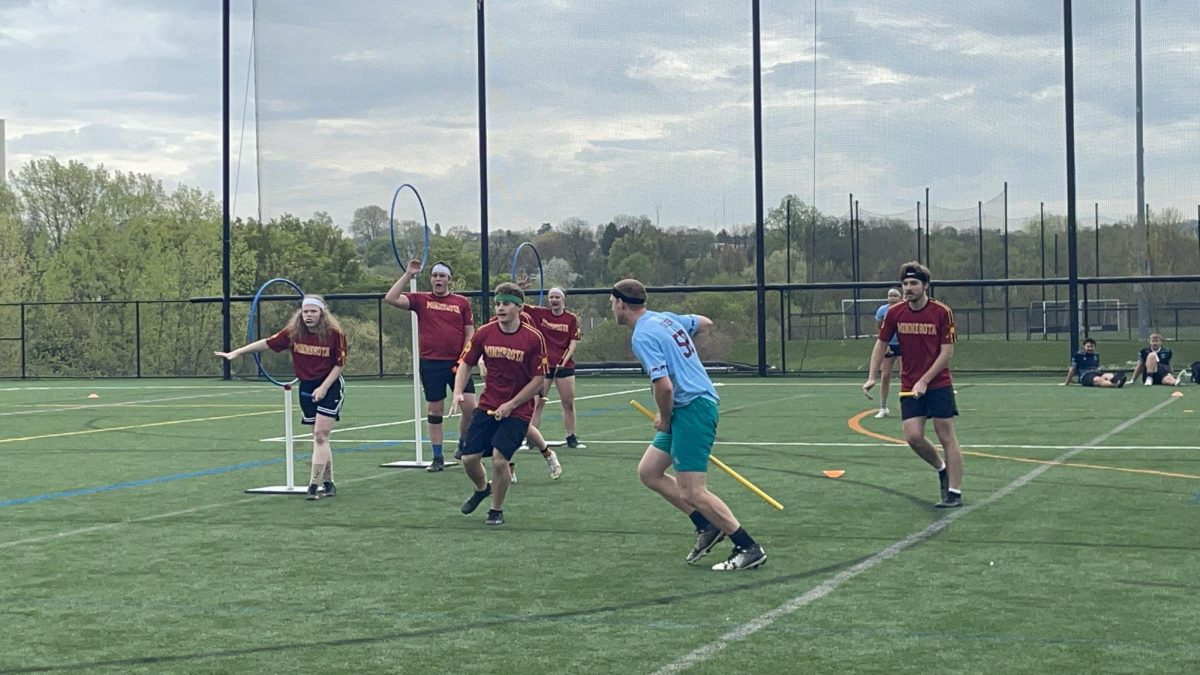The University of Minnesota’s Compassionate Action for Animals club encourages people to empathize with farm animals and move toward a plant-based, vegan or vegetarian lifestyle.
The club, which is the local chapter of a broader statewide nonprofit organization, provides a campus community for vegan students by conducting outreach to bring in new members and teaching people what it means to be vegan.
Ryan Sauers, a fourth-year student and the club’s president, said it is important to have conversations about animal rights with students on campus.
“They are going to be the future leaders of the world, and it would be a tragedy if a conversation about how we should treat animals never happened with the people who could become mayors or leaders in the government,” Sauers said.
Sauers said the club often does outreach on campus by giving out vegan food to campus community members.
During its tabling events, the club also gives people a dollar in exchange for watching a short video about standard practices in the animal agriculture industry, Sauers said.
“They are quite graphic and show a lot of animal suffering,” Sauers said.
After an individual watches the video, Sauers said club members talk to the individual about how the video made them feel. Most said they felt quite angry and sad.
Vaagishwaran Sivakumar, a fourth-year student and club treasurer, said most people think of animals like cows, pigs, chickens and fish, they see them solely as food.
“We just don’t see them with the same lens as we do our own pets that we love,” Sivakumar said. “I think that’s a complete shame.”
The club also provides support to those who want to become vegan, according to Sivakumar.
Sivakumar, who became vegan about four months ago, said the club helped him with the transition through conversations about their values and how to make vegan food.
“The more I learned about how viable being vegan was, how easily it can be done, and how creative you can get with it, I was all in,” Sivakumar said.
Sivakumar said he is proud he became vegan and grateful for the help he received from the club.
“There is a sense of pride in converting one of your favorite childhood dishes into a vegan one,” Sivakumar said. “One of the reasons I only recently became vegan was because of the childhood memories I had, which were associated with non-vegan dishes.”
Sivakumar said he successfully challenged himself to recreate several dishes, making them vegan.
“I learned I do not have to hurt animals to get the same taste I usually do, and even when I don’t achieve that same taste, my creativity can help me bridge that gap,” Sivakumar said.
The club also created a “Veg Guide” in 2023, which shows vegan dining options locally both on and off campus, Sauers said.
“I found that about 63% of restaurants on campus have a plant-based entrée on the menu,” Sauers said. “So that is super helpful for people to know if they are going out to eat with friends.”
Ronan Magnus, a third-year student and club vice president, said the Veg Guide is a great resource for anyone who wants to eat vegan on campus.
People who become vegan often worry they will not get enough supplements like omega or iron, Magnus said. The Veg Guide points these people toward articles and studies, which debunk these myths.
“Being vegan is hugely good for the environment and for greenhouse gas emissions,” Magnus said. “It is also good for your health and for empathy reasons in relation to the animals who are harmed.”
During the week of Oct. 14, the club will be hosting several events as part of its VegWeek where they will encourage people to sign a pledge to go vegan for a week. Events will include a grocery run, cookie decorating, bake sale, dine-out, career panel and movie screening.
Sauers said anyone is welcome to the club’s events, and people are encouraged to bring their friends who are not vegan or vegetarian.
“We are all in this together,” Sauers said. “No matter what your reason is, we all have the same belief that plant-based eating is beneficial.”














